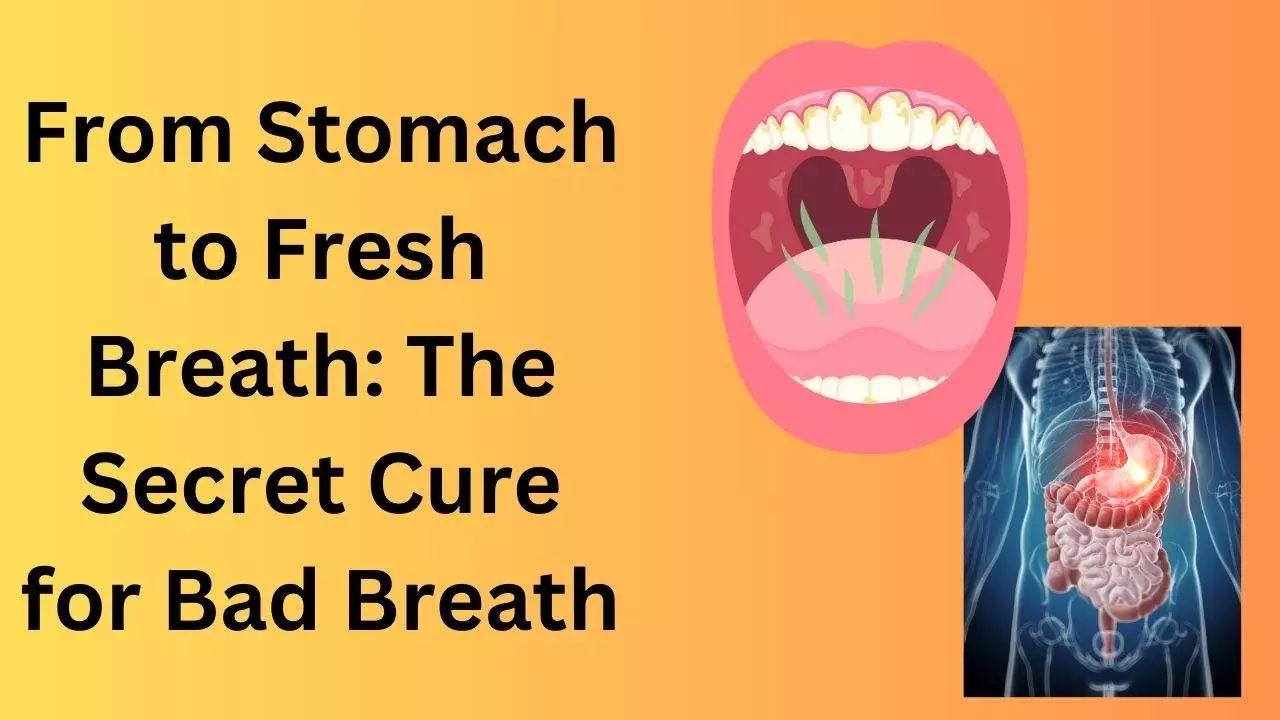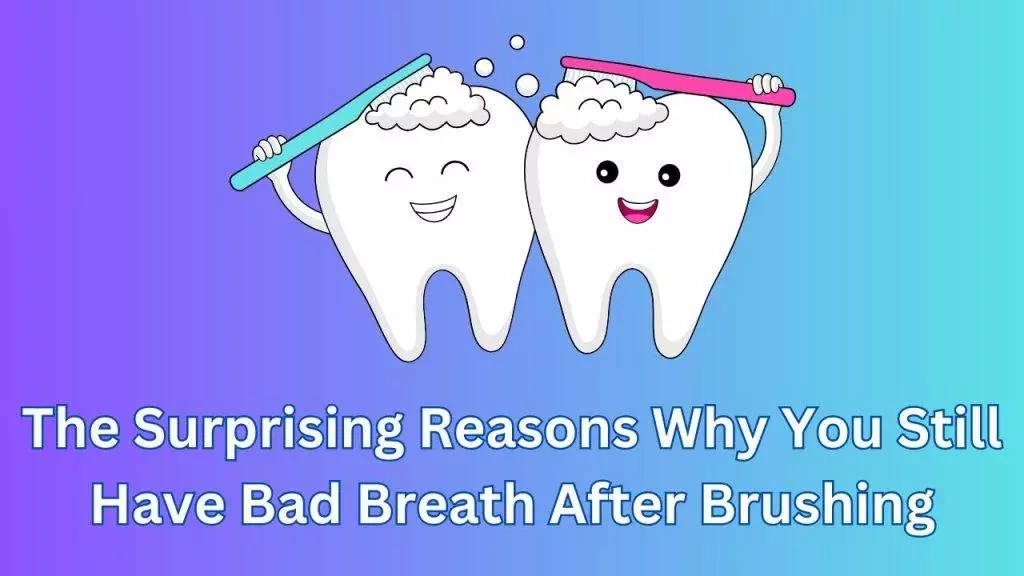
- Causes of Bad Breath: Understanding the Culprits
- The Role of Digestion in Bad Breath
- Foods to Avoid for Fresher Breath
- Foods to Eat for Better Digestion and Fresher Breath
- The Importance of Hydration for Fresher Breath
- Oral Hygiene Habits for Fresher Breath
- Natural Remedies for Bad Breath
- The Link Between Bad Breath and Overall Health
- When to Seek Professional Help for Bad Breath
- Achieving Fresh Breath Through a Healthy Lifestyle
Bad breath, also known as halitosis, is a common problem that can have a significant impact on social interactions and self-esteem. Whether it’s a lingering odor from a garlic-heavy meal or a chronic issue that seems to persist no matter what you do, bad breath can be embarrassing and uncomfortable. It can make you hesitant to speak up in conversations or even avoid close contact with others. Addressing the issue of bad breath is crucial not only for your social life but also for your overall well-being.
Causes of Bad Breath: Understanding the Culprits
There are several causes of bad breath, and understanding them is essential in order to effectively treat the problem. One of the most common causes is poor oral hygiene. When you don’t brush and floss regularly, food particles can get trapped in between your teeth and gums, leading to bacterial growth and unpleasant odors. Other causes of bad breath include certain foods and drinks, such as onions, garlic, coffee, and alcohol. These substances can leave behind strong odors that linger in your mouth.
In some cases, bad breath may be a symptom of an underlying medical condition. For example, dry mouth, also known as xerostomia, can contribute to bad breath because saliva helps to wash away bacteria and food particles. Certain medications can cause dry mouth as a side effect. Additionally, respiratory infections, sinus problems, and gastrointestinal issues like acid reflux can all contribute to bad breath.
The Role of Digestion in Bad Breath
Digestion plays a significant role in bad breath. When you eat food, it goes through the digestive process, breaking down into smaller particles that are absorbed by your body. However, some foods are more difficult to digest than others, and when they aren’t properly broken down, they can release sulfur compounds that contribute to bad breath.
Maintaining a healthy digestive system is crucial for fresher breath. This can be achieved by eating a balanced diet that includes plenty of fiber-rich foods, such as fruits, vegetables, and whole grains. Fiber helps to promote regular bowel movements and prevent constipation, which can lead to bad breath. Additionally, probiotic-rich foods like yogurt and sauerkraut can help to maintain a healthy balance of bacteria in your gut, which can also improve digestion and reduce bad breath.
Foods to Avoid for Fresher Breath
Certain foods and drinks are known to contribute to bad breath and should be avoided if you want to maintain fresher breath. Onions and garlic are notorious for causing strong odors that can linger in your mouth long after you’ve eaten them. Coffee and alcohol can also leave behind unpleasant smells. Additionally, sugary foods and drinks can contribute to bad breath because the bacteria in your mouth feed on the sugars, producing acids that can lead to tooth decay and foul odors.
Foods to Eat for Better Digestion and Fresher Breath
While there are foods to avoid for fresher breath, there are also foods that can promote better digestion and fresher breath. Fiber-rich foods like apples, carrots, and celery can help to stimulate saliva production, which helps to wash away bacteria and food particles. Leafy greens like spinach and kale are also beneficial for digestion because they contain chlorophyll, a natural deodorizer that can help to neutralize odors.
Probiotic-rich foods like yogurt, kefir, and kimchi can help to maintain a healthy balance of bacteria in your gut, which is essential for proper digestion. Additionally, herbs like parsley and mint have natural deodorizing properties and can help to freshen your breath.
The Importance of Hydration for Fresher Breath
Hydration plays a crucial role in preventing bad breath. When you’re dehydrated, your mouth produces less saliva, which can lead to dry mouth and an increase in bacteria and odors. Drinking water throughout the day helps to keep your mouth moist and flush out bacteria and food particles that can contribute to bad breath.
In addition to drinking water, you can also incorporate hydrating foods into your diet, such as watermelon, cucumbers, and citrus fruits. These foods have high water content and can help to keep your mouth hydrated and fresh.
Oral Hygiene Habits for Fresher Breath
Maintaining good oral hygiene is essential for preventing bad breath. Brushing your teeth at least twice a day and flossing daily helps to remove plaque, bacteria, and food particles from your teeth and gums. It’s important to use a toothbrush with soft bristles and replace it every three to four months or sooner if the bristles become frayed.
In addition to brushing and flossing, using a tongue scraper can help to remove bacteria and debris from the surface of your tongue, which is a common source of bad breath. Mouthwash can also be used as part of your oral hygiene routine to freshen your breath, but it should not be used as a substitute for brushing and flossing.
Natural Remedies for Bad Breath
If you’re looking for natural remedies to freshen your breath, there are several options available. Chewing on herbs like parsley, mint, or cilantro can help to neutralize odors and freshen your breath. These herbs contain natural deodorizing properties that can help to mask unpleasant smells.
Essential oils like peppermint or tea tree oil can also be used to freshen your breath. You can add a few drops of these oils to water and use it as a mouthwash or gargle with it after brushing your teeth. However, it’s important to dilute the essential oils properly and avoid swallowing them.
The Link Between Bad Breath and Overall Health
Bad breath can be a sign of underlying health issues, so it’s important to address it as a potential indicator of larger health concerns. For example, persistent bad breath can be a sign of gum disease, which is caused by the buildup of plaque and bacteria in your mouth. Gum disease not only affects your oral health but has also been linked to other health conditions like heart disease and diabetes.
In some cases, bad breath may be a symptom of digestive problems like acid reflux or gastrointestinal infections. These conditions can cause stomach acid or bacteria to travel up into your esophagus and mouth, leading to bad breath.
When to Seek Professional Help for Bad Breath
In most cases, bad breath can be improved through lifestyle changes and good oral hygiene habits. However, if your bad breath persists despite these efforts or is accompanied by other symptoms like tooth pain or bleeding gums, it may be necessary to seek professional help.
A dentist or dental hygienist can evaluate your oral health and provide treatment for gum disease or other dental issues that may be contributing to bad breath. If your bad breath is suspected to be caused by an underlying medical condition, your primary care physician or a specialist may be able to provide further evaluation and treatment options.
Achieving Fresh Breath Through a Healthy Lifestyle
In conclusion, bad breath is a common problem that can have a significant impact on social interactions and self-esteem. Understanding the causes of bad breath and taking steps to address them is crucial for maintaining fresher breath and overall well-being.
By maintaining good oral hygiene habits, eating a balanced diet that promotes healthy digestion, staying hydrated, and seeking professional help when necessary, you can achieve fresh breath and improve your overall health. Remember that fresh breath is not only important for social interactions but also serves as an indicator of your overall health. So take care of your oral health and make the necessary lifestyle changes to achieve and maintain fresher breath.










